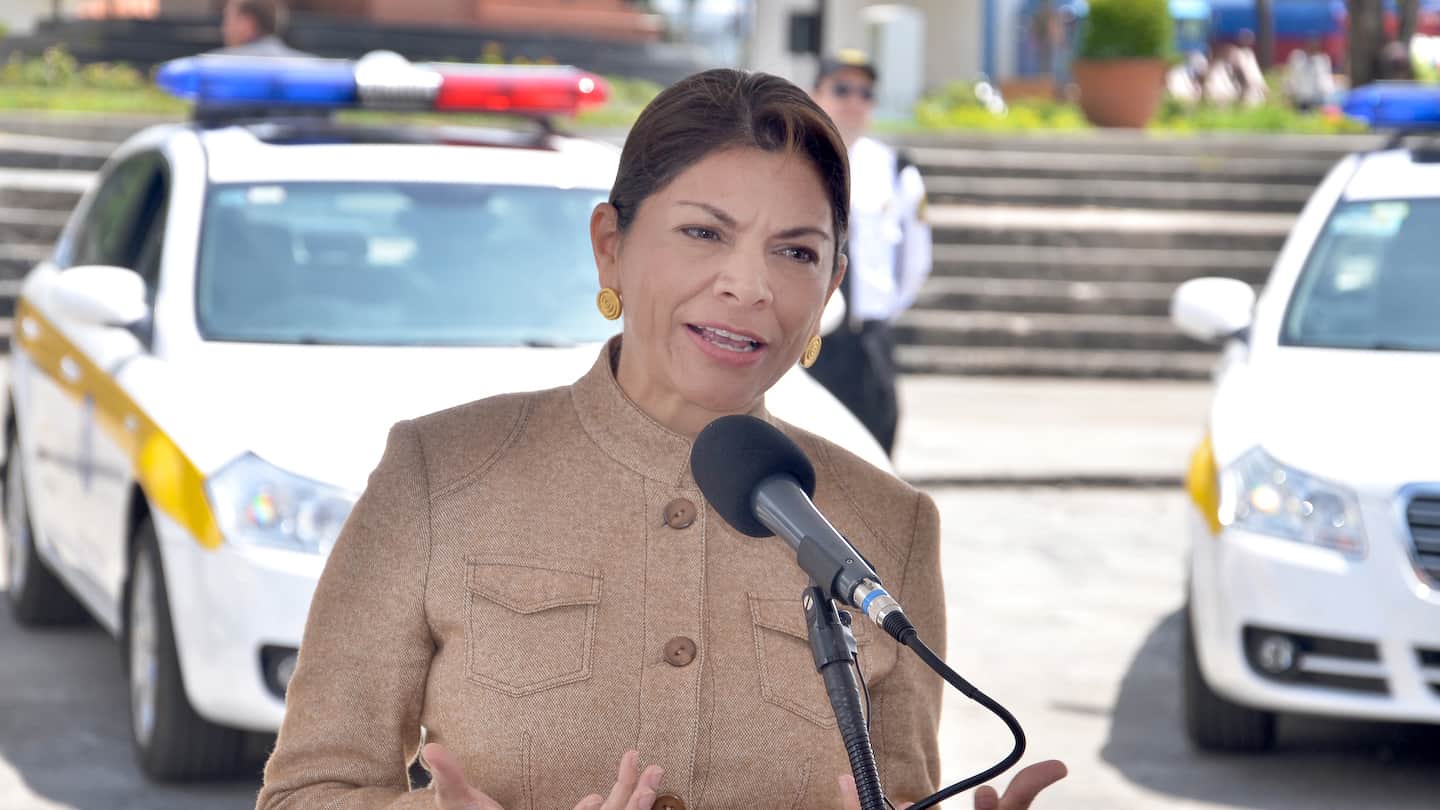A three-judge criminal court in San José on Monday tossed out a defamation lawsuit brought by ex-President Laura Chinchilla (2010-2014) against a hotel owner who accused her on Facebook of misusing her public office for personal gain. While the court ruled in favor of the defendant, freedom of expression experts said the preliminary ruling does not necessarily signal a free-for-all when it comes to criticizing public officials.
Judges Carmen María Peraza Segura, María de los Angeles Arana Rojas and Max Antonio Escalante Quirós unanimously absolved Alberto Rodríguez Baldi of the crime of defamation, which could have carried a fine of ₡100 million, some $185,000. After a week of testimony, the panel decided that there was insufficient evidence to continue with the hearing.
The former Costa Rican president sued hotelier Baldi in June 2013 for defamation based on a Facebook post alleging Chinchilla illicitly benefitted from her public office in order to buy millions of dollars worth of land in Puntarenas and Guanacaste’s Nicoya Peninsula, supposedly slated for a wind power development project.
Fittingly, both sides took to social media to voice their opinions of the decision. Baldi posted on Facebook:
Infinite thanks to all the Costa Ricans who sent messages of support, which of the hundreds I was unfortunately unable to respond to individually, but in my heart in and my family, my undying thanks to the country’s solidarity. …
I invite all citizens to denounce all examples of corruption and that we show that we are not afraid of influence peddlers, of those who abuse their power, and white-collar criminals.
We express our outrage at the opacity of the Prosecutor of White-Collar Crimes, and we show with our individual actions that we do not need politicians to save the homeland, because Costa Rica saves itself with each of its children.
Chinchilla responded on Twitter:
Aunque el falló no nos resultó favorable y no lo comparto,el juicio demostró q NO era verdad lo q se escribió y publicó en mi contra.1/2
— Laura Chinchilla M. (@Laura_Ch) July 21, 2014
“Even though the ruling was not favorable to us and I don’t agree with it, the trial demonstrated that it was NOT true what [Baldi] wrote and published about me,” Chinchilla tweeted.
In a second tweet, she said, “My greater worry is for the future of social networks and those who only conceive of them to harm or intimidate.”
Mi mayor preocupación es por el futuro de las redes sociales y quienes tan sólo las conciben para dañar o amedrentar. #LauraVsBaldi 2/2
— Laura Chinchilla M. (@Laura_Ch) July 21, 2014
From the documents provided to The Tico Times by the court Monday, it was not possible to verify whether or not Baldi’s allegations were true.
Freedom of expression experts agreed that the case had the potential to set a precedent for the limits of freedom of expression on social media in Costa Rica. While the ruling erred on the side of greater expression, experts stressed that there are limits to freedom of expression.
Alejandro Delgado, president of the Press and Freedom of Expression Institute, told The Tico Times that the decision suggested a greater tolerance for freedom of expression, adding that “public officials must have a greater tolerance for criticism when it is truly a critique and not defamation.”
“This decision does not give license to anyone to use social networks to disrespect other people, much less public officials,” Marlon Mora, president of the Costa Rican Journalists’ Association, told The Tico Times. “Freedom of expression should never be used as a shield to defame someone.”
Both experts agreed that the preliminary ruling suggested that speech on social networks carries the same protections and responsibilities as any other media.
Baldi still faces another lawsuit from former Public Works and Transport Minister Pedro Castro. Chinchilla’s lawyer has said they plan to appeal the decision.
The court’s full ruling will be made public on Wednesday, July 23.






